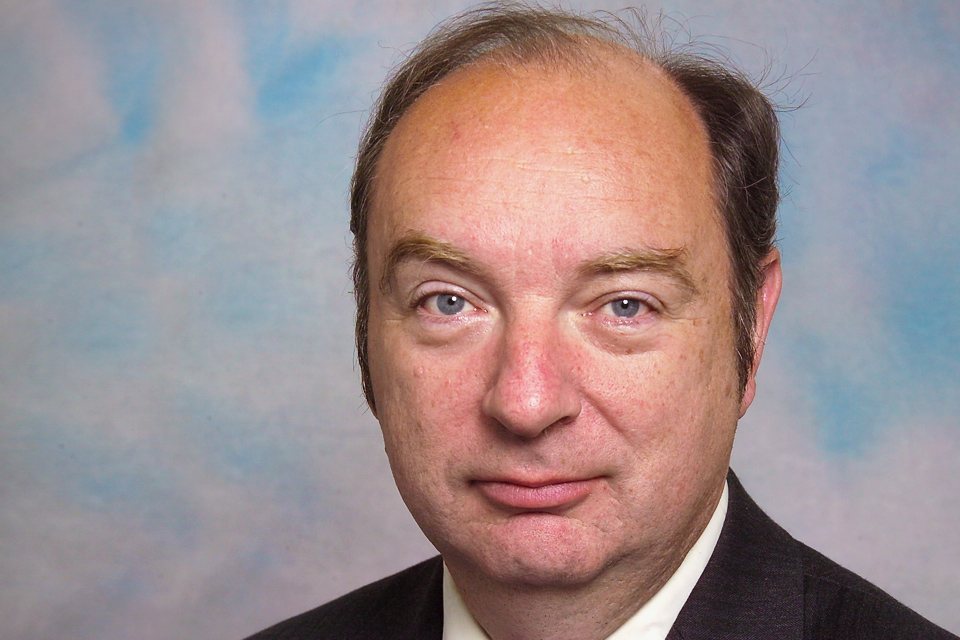Communications: purpose and practice
Explains how technology is reshaping the way we work and the way we travel for the better.

Norman Baker MP provides an opening address for the Unified Communications Expo 2012, held on 6 and 7 of March 2012 in London.
Communications: Purpose and Practice
Transcript
Hello, and thank you for asking me along to your event today (6 March 2012).
While it would be good to meet you all in person, somehow a virtual appearance feels more in the spirit of an event promoting the wonders of modern communication technology.
The convergence of next generation voice applications, cloud computing, video-technology and social media offers exciting prospects for business, not just in the future, but now.
I can’t claim to be an expert in any of these new frontiers of communication - there are Expo experts out there who can tell you everything you need to know.
But I do think it’s worth a step back from the bewildering array of gadgets and gizmos to remember 1 thing.
At root, this is all about human beings. Communications technology can only ever be as good as the communicator. And if we’re to make the most of that technology, we must make sure it has a purpose, we must be clear about precisely what we want to use if for.
Otherwise it becomes a solution in search of a problem.
I think that purpose lies in radically redefining our working behaviour. Communications technology gives us the potential to sever the once unbreakable bond between work and the office. It dares us to dream of an office without walls, where work comes to you, rather than you going to the work.
Ever since the first laptops and email came onto the scene they have given us tremendous potential to work differently. Yet most businesses were happy to leave that potential untapped. They were, in the words of Marshall McLuhan, “march[ing] backwards into the future?”
Yet that’s starting to change. And for 2 reasons:
Firstly, necessity. The coalition government is committed to reducing greenhouse gas emissions by 50% from 1990 levels between 2023 to 2027. Since 22% of the UK’s domestic carbon emissions are from transport, radical reductions will require people to consider their low carbon options and virtual travel is about as low carbon as they come.
It’s equally true that any business worth its salt will need to be prepared when the bad weather comes. Especially when more and more of our customers expect us to be available 24/7. Lest we forget, there are also 1 or 2 major events on the horizon - such as the Olympics - that are likely to test our transport system to the limit. Communications technology can allow companies to keep on running no matter what’s coming down the track.
But the second reason why I believe businesses are starting to the tap into the true potential of communications technology is an even more powerful one. It is because they have spotted the opportunity.
Remote working is saving law firm Eversheds £1.3 million a year and 1 Telefonica sales manager 30 working days per annum in travel.
BT found telephone conferencing eliminated 859,784 meetings per year, saved £135 million and brought in an extra £103 million per year.
In the public sector too the Environment Agency reduced its business mileage by 19 million miles in the last 5 years through, among other things, teleconferencing. Where on earth were they going, you might ask. I confess, I don’t know, but I do know they’ve stopped!
Elsewhere the University of Bradford found installing virtual meeting technologies in 5 universities reduced stress, and gave people more control of their time.
This growing recognition of the need to adopt what I see as ‘unified communications’ and the growing realisation of the opportunity it represents is beginning to have a much wider impact.
We are now seeing partnerships in the public and private sector experimenting with new technology to try out new ways of doing things.
This week the Anywhere Working consortium - a business-led initiative - is running a range of activities highlighting the benefits of remote working from the value of video conferencing to the wonders of webinars.
And earlier in the month the Department for Transport was joined by 12 departments across Whitehall to try out new ways of working during a week we dubbed Operation StepChange. Use of laptops went through the roof - up on average 90%. While our Secretary of State for Transport and Cabinet Minister Francis Maude also discovered a new way of holding meetings.
These early adopters, these advocates for better ways of working, are helping us realise the true potential of communications technology. Moving us from paper-less office, to office-less work.
Turning what, up until now has been a unified communications theory, into unified communications practice.
And, in the process, fundamentally reshaping the way we work and the way we travel for the better.
Thank you for listening, and have a good day.